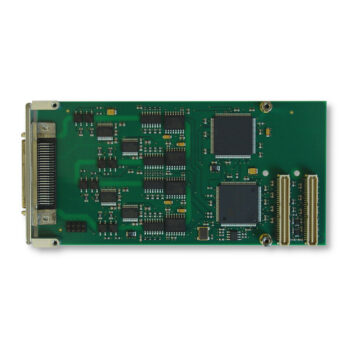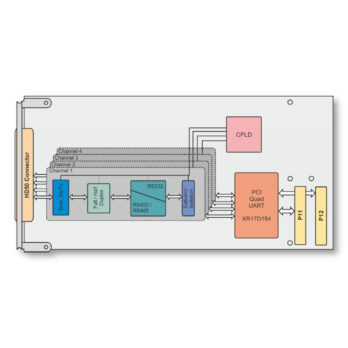The TPMC470 is a standard single-width 32 bit PMC module offering 4 channels of high performance RS232/RS422/RS485 programmable asynchronous serial interface with front panel I/O. Each of the four channels are isolated from the system and against each other by digital isolator and on board integrated DC/DC converter.
The serial channels can be individually programmed to operate as RS232, RS422 or RS485 full duplex/half duplex interface. In addition programmable termination is provided for the RS422/RS485 interfaces. After power-up all serial I/O lines are in a high impedance state.
All modules offer front panel I/O with a HD50 SCSI-2 type connector. Each RS232 channel supports RxD, TxD, RTS, CTS and GND. RS422 and RS485 full duplex support a four wire interface (RX+, RX-, TX+, TX-) plus ground (GND). RS485 half duplex supports a two wire interface (DX+, DX-) plus ground (GND).
Each channel has 64 byte transmit and receive FIFOs to significantly reduce the overhead required to provide data to and get data from the transmitters and receivers. The FIFO trigger levels are programmable and the baud rate is individually programmable up to 921.6 kbps for RS232 channels and 5.5296 Mbps for RS422 channels. The UART offers readable FIFO levels.
All channels generate interrupts on PCI interrupt INTA. For fast interrupt source detection the UART provides a special Global Interrupt Source Register.
All serial channels use ESD protected transceivers. ESD protection is up to ±15KV.
The TPMC470 can operate with 3.3V and 5.0V PCI I/O signalling voltage.
Software Support (TDRV002-SW-xx) for different operating systems is available.



